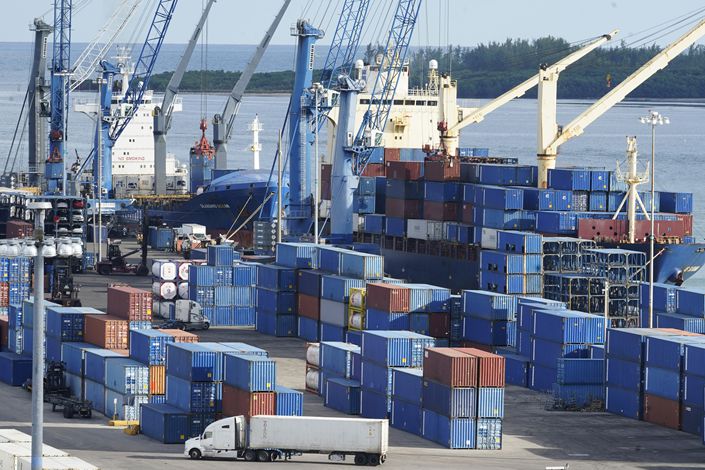
In the face of surging domestic inflation, U.S. President Joe Biden plans to roll back additional tariffs imposed by his predecessor on Chinese goods. And although this alone cannot tame inflation, it is still worth a try.
Because it misjudged inflation, the U.S. Federal Reserve has had to aggressively tighten monetary policy to fend off the wage-price spiral. Additionally, communication with oil-exporting countries, tariff cuts and other approaches are also necessary to address this urgent problem.
The Biden administration is still managing trade and economic relations with China based on the phase one trade deal, which was inherited from the Trump administration. In my opinion, the U.S. will abandon or revise the deal if it can be replaced by a comprehensive strategy or if consistent high inflation prompts Biden to seek bipartisanship to make policy adjustments.
Recent developments, such as the launch of the U.S.-Taiwan Initiative on 21st-Century Trade and the Indo-Pacific Economic Framework for Prosperity (IPEF), have shown the Biden administration’s strategy for coping with China. Under its Indo-Pacific strategy, the U.S. will flesh out the IPEF, restructure economic alliances and set up new trade and economic rules.
U.S. Secretary of State Antony Blinken said last month that “thanks to increased investments at home and greater alignment with allies and partners, we are well-positioned to outcompete China in key areas.” This will be the foothold for U.S. policy toward China and its Indo-Pacific strategy.
These realities suggest that the U.S., along with its allies, will make their own rules for bilateral or multilateral trade. They will seek to alienate China by strengthening their collaborations on 5G, artificial intelligence and other emerging areas. Consequently, they will be able to become less dependent on China in global supply chains.
Wang Yi, China’s foreign minister, has denounced the U.S. value-based trade policy as violating the basic laws of economics. But the cold reality is that globalization purely for pursuing economic interests and commercial profits is deemed by some as outdated.
On the one hand, the U.S. will form an anti-China geopolitical alliance in the economic and technological spheres, contain Chinese technology and blacklist Chinese technology companies, which may further intensify the conflict between the two sides, and hinder technological innovation in China.
But on the other hand, the Biden administration may exempt household goods and those that do not involve key technologies from Trump’s tariff “legacy,” because they have become an increasingly heavy burden in the face of high inflation.
The Biden administration’s strategy toward China will shift from the “continuous pressure” policy adopted by the Trump administration to one that will allow the U.S. to outcompete China with superior economic, technological and military power.
To be sure, China’s enormous market with great potential remains alluring to its allies and trade partners, but Washington’s would-be new rules will keep posing challenges to their close economic ties.
Read more Singapore’s Leader Warns Against Isolating China After Biden Visit
Zhu Changzheng is an independent researcher, founder of think tank the Changping Academy and coauthor of Great Transformation.
Translated by Zizan Wang
Contact editors Jonathan Breen (jonathanbreen@caixin.com) and Lin Jinbing (jinbinglin@caixin.com)
The views and opinions expressed in this opinion section are those of the authors and do not necessarily reflect the editorial positions of Caixin Media.
If you would like to write an opinion for Caixin Global, please send your ideas or finished opinions to our email: opinionen@caixin.com
Get our weekly free Must-Read newsletter.







